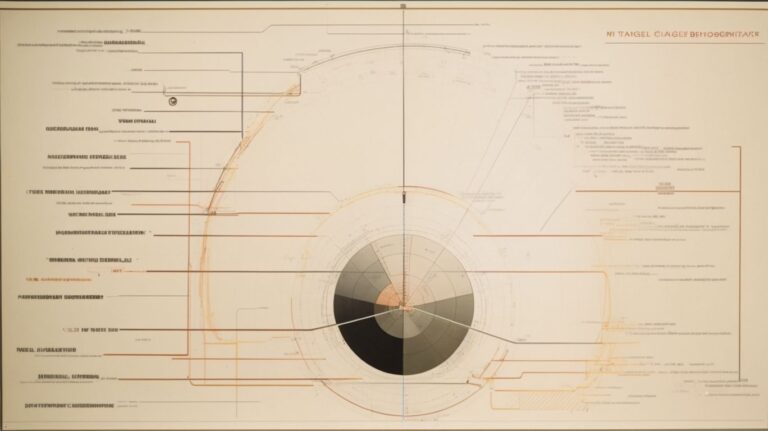Have you ever wondered why some memories stick with us longer than others? The Self-reference Effect in psychology offers an intriguing explanation. This phenomenon, rooted in memory and emotion, plays a significant role in how we process information and make connections in our everyday lives.
From advertising strategies to therapeutic techniques, the applications of the Self-reference Effect are vast and diverse. In this article, we will delve into the definition, history, workings, criticisms, and practical uses of the Self-reference Effect, and explore how it can be harnessed to enhance memory retention and emotional well-being.
Let’s unravel the fascinating world of the Self-reference Effect together.
Contents
- 1 What is the Self-reference Effect?
- 2 How Does the Self-reference Effect Work?
- 3 What are the Applications of Self-reference Effect in Psychology?
- 4 What are the Criticisms of Self-reference Effect?
- 5 How Can the Self-reference Effect be Utilized in Everyday Life?
- 6 Frequently Asked Questions
- 6.1 What is the self-reference effect in psychology?
- 6.2 How is the self-reference effect studied in psychology?
- 6.3 What are some examples of the self-reference effect in everyday life?
- 6.4 Why does the self-reference effect occur?
- 6.5 How does the self-reference effect impact learning and education?
- 6.6 Can the self-reference effect have negative consequences?
What is the Self-reference Effect?
The self-reference effect is a well-documented phenomenon in cognitive psychology, supported by extensive research and studies exploring the intricacies of memory encoding.
This effect underscores the notion that individuals tend to retain information more effectively when it is personally relevant to them, indicating a robust link between self-referential processing and memory retention. The concept of self-reference first gained prominence in the 1970s with the pioneering work of researchers like George Kelly, who posited that our perceptions of self shape our interpretations of the world around us. Through various experiments and studies, psychologists have highlighted how the self-reference effect influences the encoding and retrieval of memories, shedding light on the complex cognitive mechanisms at play.
What is the Definition of Self-reference Effect?
The self-reference effect, rooted in cognitive theory, refers to the phenomenon where individuals demonstrate superior memory recall for information that relates to their own self-concept or personal constructs.
Research on the self-reference effect indicates that our brains prioritize and enhance the encoding and storage of information that is somehow connected to our identity or self-perception, resulting in better retention and easier retrieval.
This cognitive bias is closely intertwined with the concept of personal constructs, reflecting how we organize and interpret information based on our internal frameworks of self-knowledge and beliefs.
Neuroimaging studies have offered valuable insights into the neural mechanisms underlying the self-reference effect, pointing towards specific brain regions like the medial prefrontal cortex and posterior cingulate cortex that play pivotal roles in processing and integrating self-relevant information.
What is the History of Self-reference Effect?
The history of the self-reference effect can be traced back to the foundational work of researchers such as Stanley B. Klein, who explored its implications within the broader framework of attribution theory.
Stanley B. Klein’s research marked a significant turning point in understanding how individuals process information in relation to the self. His experiments demonstrated that when individuals engage in self-referential encoding, there is a memory advantage compared to other forms of encoding.
Over time, researchers have further delved into the mechanisms underlying the self-reference effect, leading to the identification of cognitive processes involved in information retention and retrieval.
How Does the Self-reference Effect Work?
Understanding the mechanisms of the self-reference effect involves exploring how information is processed and stored in memory, with specific emphasis on the brain regions implicated in self-referential encoding.
One crucial aspect of the self-reference effect lies in its connection to semantic encoding, where information is processed meaningfully and connected to existing knowledge frameworks. This process often involves activation of the medial prefrontal cortex and the posterior cingulate cortex, regions known to be key players in self-referential cognition.
The interplay between these brain areas during self-referential tasks can significantly impact the depth of encoding and subsequent recall. Studies have shown that source memory, which pertains to remembering the origin of information, plays a vital role in self-referential judgments and the overall effectiveness of encoding strategies.
What is the Role of Memory in Self-reference Effect?
Memory plays a pivotal role in the self-reference effect paradigm, influencing factors such as item memory, performance on recognition tasks, and the retention of specific details associated with self-referentially encoded information.
When individuals relate new information to themselves, it triggers a deeper processing level that strengthens memory consolidation. The self-reference effect not only enhances the encoding of information but also boosts the retrieval process.
This phenomenon is observed in various cognitive tasks, where self-referential encoding is linked to better long-term memory compared to other encoding strategies. The self-reference effect aids in creating a more elaborate memory trace by connecting new knowledge to pre-existing self-concepts, reinforcing the encoding of specific details.
Research suggests that the self-referential encoding process involves a complex interplay between cognitive and emotional factors, which contribute to the durability and accessibility of memories.
What is the Role of Emotion in Self-reference Effect?
Emotion plays a significant role in shaping the self-reference effect through its impact on cognitive processes, influencing aspects such as emotional regulation and the online version of self-referential paradigms.
When individuals engage in self-referential processing, emotions serve as a guiding force, leading to enhanced memory encoding and retrieval based on personal relevance. The interaction between emotion and the self-reference effect can be observed in various cognitive tasks, such as decision-making and problem-solving, where emotional cues shape the evaluation of information related to the self.
The regulatory function of emotion in self-referential judgments highlights its dual role in both facilitating and inhibiting the processing of self-related information. This intricate interplay between emotion and the self-reference effect underscores the complexity of human cognition and its susceptibility to emotional influences.
What are the Applications of Self-reference Effect in Psychology?
The applications of the self-reference effect in psychology extend to diverse areas such as advertising strategies, therapeutic interventions, and meta-analyses that consolidate findings from self-referencing studies.
Advertising campaigns often leverage the self-reference effect by creating relatable narratives or situations that prompt consumers to connect on a personal level with the product or service being promoted. This personal connection increases the likelihood of memory retention and positive associations with the brand.
Similarly, in therapeutic settings, therapists use self-referencing techniques to help individuals develop a deeper understanding of themselves, fostering introspection and emotional healing.
Meta-analytic approaches play a crucial role in synthesizing research outcomes across different self-referencing studies, offering a comprehensive view of the effect’s impact in various contexts.
How is Self-reference Effect Used in Advertising?
In advertising, the self-reference effect is harnessed to create targeted campaigns that resonate with individuals’ self-concepts, leveraging insights from cognitive theories and experimental variations conducted via platforms like MTurk.
The strategic application of the self-reference effect in advertising relies on the fundamental concept that individuals are more likely to pay attention to and engage with content that is personally relevant to them. Leveraging insights from cognitive psychology, advertisers aim to tap into an individual’s self-perceptions and beliefs to craft messages that are compelling and relatable. By incorporating elements that trigger self-referential processing, such as personalized narratives and imagery, advertising campaigns can establish a deeper connection with the target audience.
How is Self-reference Effect Used in Therapy?
Therapeutic interventions leverage the self-reference effect to enhance treatment outcomes, drawing insights from neuroscience studies, utilizing tools like Qualtrics software to facilitate self-referencing studies that aid in personal growth and emotional regulation.
Studies have shown that the self-reference effect, rooted in psychology, acts as a powerful mechanism for individuals to process and encode information more effectively when it relates to themselves. The integration of neuroscientific findings into therapeutic approaches has enabled practitioners to tailor interventions that resonate with the individual’s self-concept, fostering deeper engagement and receptivity to treatment modalities.
Technological advancements such as Qualtrics software have streamlined data collection processes in self-referencing studies, allowing researchers to gain valuable insights into cognitive patterns and emotional responses for refining intervention strategies.
What are the Criticisms of Self-reference Effect?
Critics have raised questions about the reliability of the self-reference effect as a consistent phenomenon and ethical concerns regarding its implications for individuals’ self-concepts and cognitive processes.
One of the main criticisms leveled against the self-reference effect is the inconsistency in the research findings. While some studies have supported the notion that information processed in relation to oneself is better remembered, other research has failed to replicate these results, casting doubt on the reliability of this effect.
Ethical considerations come into play when exploring the self-reference effect. Critics argue that the focus on self-concept may inadvertently lead to negative comparisons or the reinforcement of certain stereotypes, potentially harming individuals’ psychological well-being.
The broader impact of the self-reference effect on cognitive processes has been a subject of debate. Some experts suggest that excessive self-referential processing may contribute to narcissistic tendencies, while others argue that it could enhance self-awareness and emotional understanding.
Is Self-reference Effect a Reliable Phenomenon?
The debate regarding the reliability of the self-reference effect delves into factors such as source memory accuracy, the implications of the Fundamental Attribution Error, and critiques articulated by researchers like Sensenig.
Sensenig highlighted the need to consider the context in which individuals encode and retrieve information about the self. This feeds into the argument that memory is not a static entity but is subject to influence from various cognitive biases such as the Fundamental Attribution Error. Critics of the self-reference effect point out that while it may enhance certain aspects of memory, it can also introduce distortions and inaccuracies, particularly when individuals project their current selves onto past experiences.
Are There Any Ethical Concerns with Using Self-reference Effect?
Ethical considerations surrounding the self-reference effect revolve around issues of consent, the manipulation of lab conditions, ethical guidelines proposed by researchers like Haley, and the implications of self-referential judgments on participant well-being.
Researchers often grapple with ensuring that participants are fully informed and provide consent to partake in experiments involving the self-reference effect. The challenges of maintaining the integrity of lab conditions further complicate ethical decision-making processes. Insights from prominent figures like Haley shed light on the nuanced ethical nuances inherent in utilizing self-referential judgments within research settings. These ethical dilemmas underscore the need for researchers to navigate the complexities of participant well-being and data integrity while studying the self-reference effect.
How Can the Self-reference Effect be Utilized in Everyday Life?
In everyday life, harnessing the self-reference effect can improve memory retention, facilitate emotional regulation, and enhance cognitive processes through the application of self-referential encoding strategies.
One practical way to apply the self-reference effect in memory enhancement is by connecting new information to personal experiences or aspects of the self. By linking what you want to remember to your own life, you create stronger neural connections and make the information more easily retrievable.
In emotion regulation, consciously relating your current feelings to personal experiences or values can aid in understanding and managing emotions effectively. By reflecting on your own emotional responses, you develop a deeper insight into your emotional triggers and patterns.
The cognitive benefits derived from self-referential encoding paradigms can be utilized in daily activities by actively relating new knowledge to what you already know. This practice not only enhances memory consolidation but also promotes critical thinking and problem-solving skills.
How Can Self-reference Effect Improve Memory Retention?
Enhancing memory retention through the self-reference effect involves activating cortical mid-line structures associated with self-referential processing, optimizing semantic encoding for improved item memory recall.
The self-reference effect works by engaging the cortical mid-line structures, including the medial prefrontal cortex, posterior cingulate cortex, and precuneus, which are crucial for self-relevance judgments. These regions light up during tasks that involve relating information to oneself, fueling enhanced memory consolidation.
The self-reference effect facilitates semantic encoding by encouraging individuals to process information deeply in relation to themselves, thereby creating strong associative links between the incoming data and existing self-knowledge.
To bolster item memory recall, individuals can employ various strategies like visual imagery, elaborative rehearsal, and creating personal connections with the material, all of which capitalize on the self-referential nature of memory processing.
How Can Self-reference Effect Help with Emotional Regulation?
Utilizing the self-reference effect for emotional regulation involves leveraging online platforms to engage the Parietal lobe in self-referential tasks, facilitating a meta-analytic approach to understanding emotional responses.
The self-reference effect refers to the phenomenon where individuals better remember information that is related to themselves. In terms of emotional regulation, this effect plays a crucial role in enhancing self-awareness and promoting cognitive reappraisal of emotions. Online tools offer a convenient means of engaging in self-referential tasks, allowing individuals to reflect on their own experiences, values, and beliefs.
Research has suggested that the Parietal lobe plays a significant role in emotion processing and self-referential cognition. This brain region helps integrate sensory information with self-relevant processes, contributing to the regulation of emotional experiences.
Frequently Asked Questions
What is the self-reference effect in psychology?
The self-reference effect is a phenomenon in psychology where individuals have better memory recall for information that is related to themselves compared to information that is not self-relevant.
How is the self-reference effect studied in psychology?
The self-reference effect is typically studied through experiments that involve participants learning and recalling information that is either self-referential or non-self-referential. These experiments may also use brain imaging techniques to understand the neural mechanisms underlying the effect.
What are some examples of the self-reference effect in everyday life?
Some examples of the self-reference effect include remembering someone’s name better if it is related to your own name, being more likely to remember information that relates to your personal interests or experiences, and having better memory for personal memories compared to general knowledge.
Why does the self-reference effect occur?
The self-reference effect is believed to occur because information that is related to the self is processed more deeply and connected to existing self-knowledge, making it more easily accessible in memory.
How does the self-reference effect impact learning and education?
The self-reference effect has important implications for learning and education. By incorporating self-referential activities and examples into teaching, educators can help students process and retain information more effectively.
Can the self-reference effect have negative consequences?
While the self-reference effect can have positive benefits for memory recall, it can also lead to biased processing and memory distortions. This can be seen in cases of self-enhancement or self-deception, where individuals have a distorted perception of themselves and their abilities.



